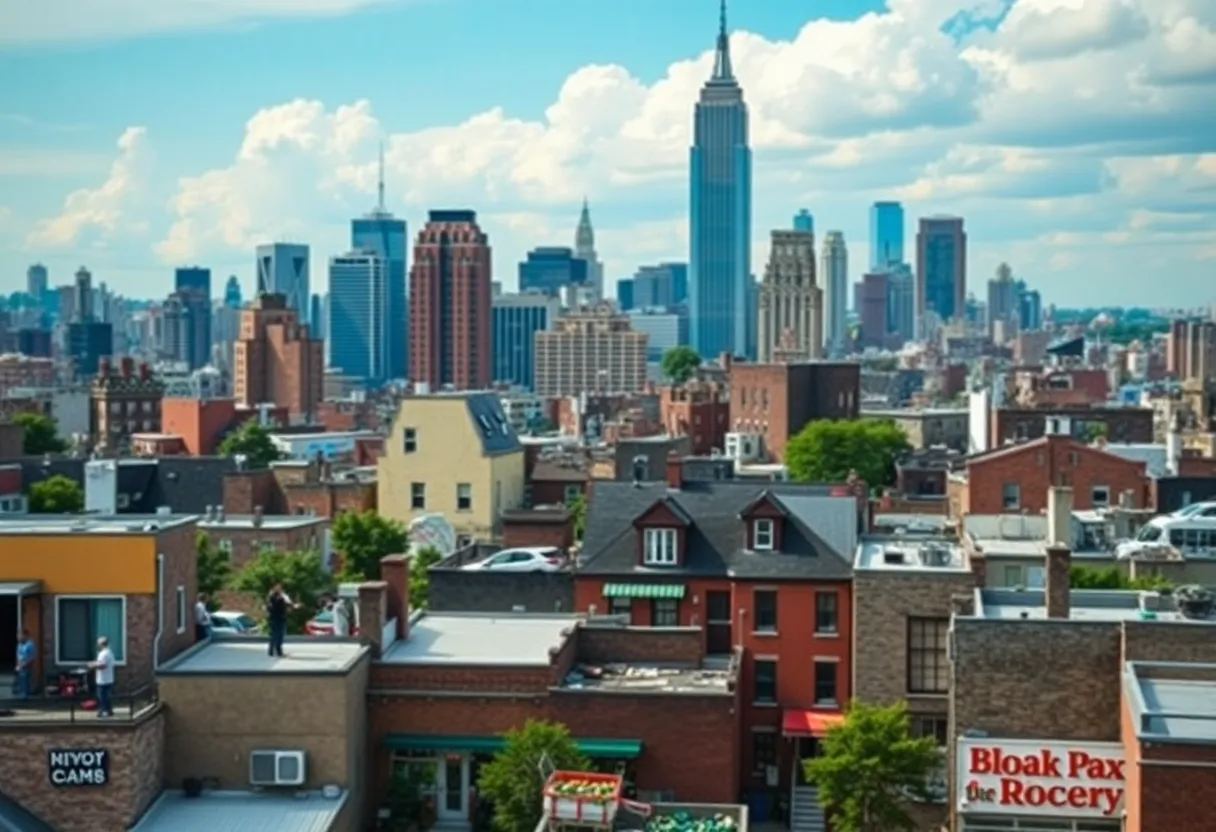News Summary
Zohran Mamdani’s win in the Democratic mayoral primary has sparked discussions about his proposal for city-operated grocery stores aimed at fighting food insecurity and rising prices. The initiative, which seeks $60 million in subsidies, focuses on food deserts, catering to millions of New Yorkers facing hunger. While supported by some experts, it faces criticism from local businesses fearing competition and economic implications. Many are questioning the feasibility and impact of such municipal stores on overall food access and existing private enterprises.
New York City
Zohran Mamdani’s victory in the Democratic mayoral primary last month has ignited a heated debate surrounding his proposal for municipal-owned grocery stores aimed at alleviating rising food prices and inflation. His initiative suggests creating a network of city-operated grocery stores across all five boroughs, requiring an initial subsidy of $60 million.
The proposed grocery stores would be located in areas classified as “food deserts,” where residents have limited access to fresh produce and healthy food options. This plan comes in response to the alarming statistic that approximately 1.5 million New York City residents experience food insecurity, compounded by the fact that grocery prices in the city consistently exceed those in many other U.S. urban areas.
Support for Mamdani’s plan has emerged from various experts, including Nevin Cohen, the director of the CUNY Urban Food Policy Institute. Proponents argue that the establishment of municipal grocery stores is essential in providing affordable food options to a city where a significant portion of the population struggles to access basic nutritional needs.
Despite the support, Mamdani’s grocery store initiative has faced substantial opposition from political figures, including current Mayor Eric Adams. Critics contend that government-operated stores would undermine local bodegas and supermarkets, potentially harming the small businesses that form the backbone of many communities. Industry representatives have described the proposal as ill-fated, warning that government-run grocery stores could threaten existing private businesses that already operate on slim profit margins. Concerns have been raised about the potential for creating a system reminiscent of “Soviet-style” economics.
A notable figure in the local grocery business, John Catsimatidis, owner of the Gristedes supermarket chain, has expressed intentions to relocate his business if Mamdani’s plan comes to fruition. This highlights the anxiety present among established retailers regarding competition from municipal stores.
While successful examples of municipally owned grocery stores remain sparse in the U.S., the model has gained traction in cities like Atlanta, which are exploring grocery store initiatives after struggling to attract private retailers to underserved communities. Mamdani’s proposal draws inspiration from various existing business models, including military commissaries and public markets, emphasizing the potential for city-owned grocery stores to thrive in areas of need.
As the conversation around Mamdani’s plan continues, questions remain regarding the operation of these grocery stores. It is unclear whether the city would be responsible for building them, lease them to private operators, or manage them directly. For the initiative to succeed, experts underscore the importance of attracting a diverse customer base that goes beyond just low-income residents.
Mamdani’s grocery store initiative is just one aspect of a broader campaign agenda that includes proposals for rent stabilization, universal childcare, and free public transportation. The funding for these initiatives would likely come from tax increases, particularly targeting the top 1% of earners with a flat 2% increase and raising corporate tax rates. Some state officials, including Governor Kathy Hochul, have shown skepticism regarding such tax increases, especially during periods of economic uncertainty.
The recent primary election featured low voter turnout, which has raised concerns among critics regarding the legitimacy of Mamdani’s win. Nevertheless, he claimed victory with 43.5% of the vote against several prominent opponents, suggesting that he successfully mobilized a significant segment of new voters in the city.
As debates surrounding Mamdani’s grocery store proposal and his broader campaign plans continue, stakeholders across the city remain engaged in discourse about the future of food access and economic policy in New York City.
Deeper Dive: News & Info About This Topic
- Washington Post: City-run grocery stores in New York
- CNN: Zohran Mamdani’s grocery store proposal
- Forbes: Zohran Mamdani’s proposals detailed
- MSNBC: Zohran Mamdani’s grocery stores in food deserts
- New York Post: Funding for government grocery stores
- Wikipedia: Food desert
- Google Search: Municipally owned grocery stores
- Google Scholar: Food policy
- Encyclopedia Britannica: Grocery Store
- Google News: Zohran Mamdani








